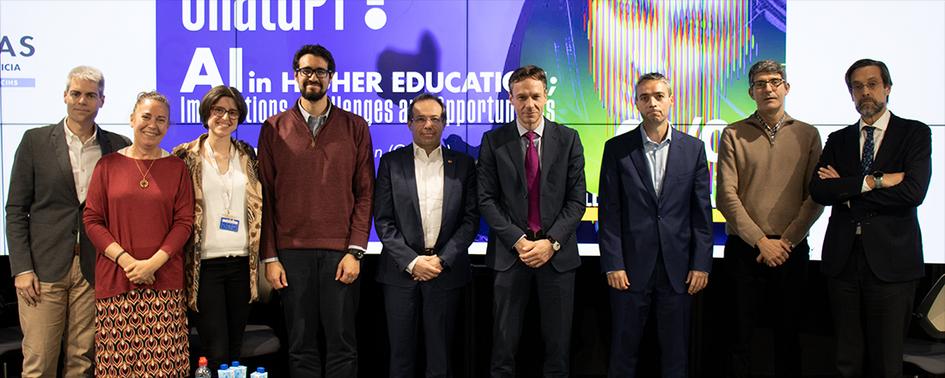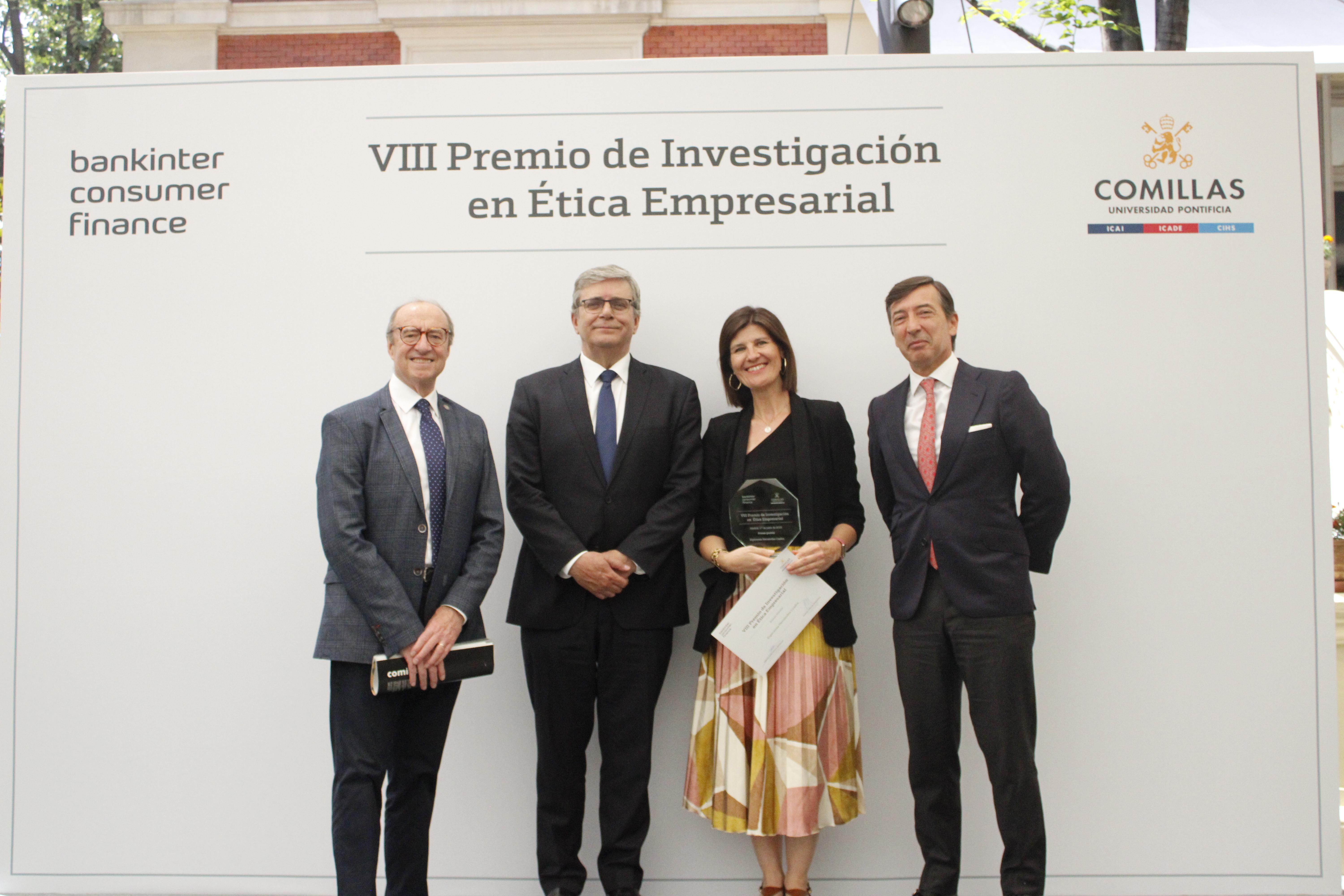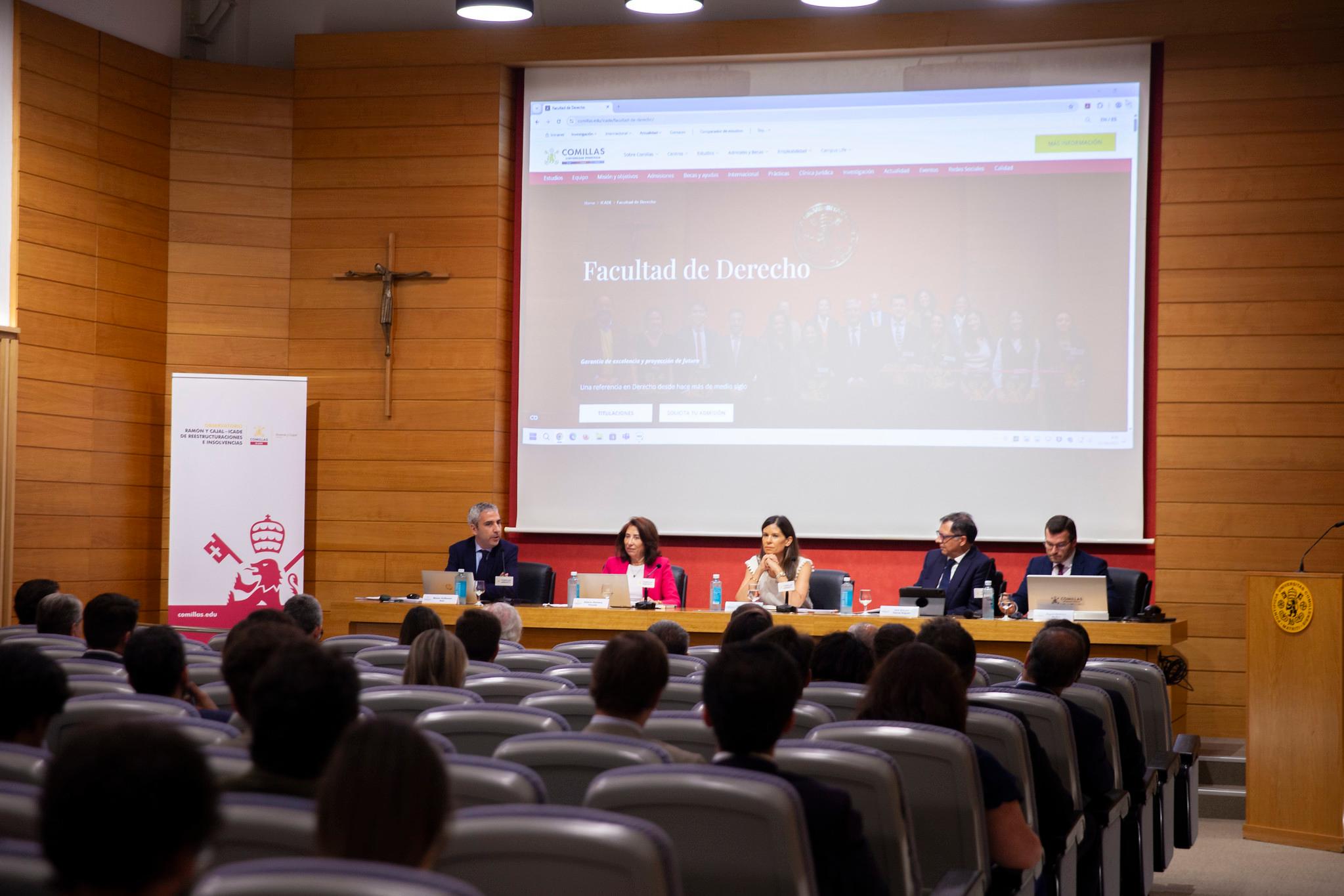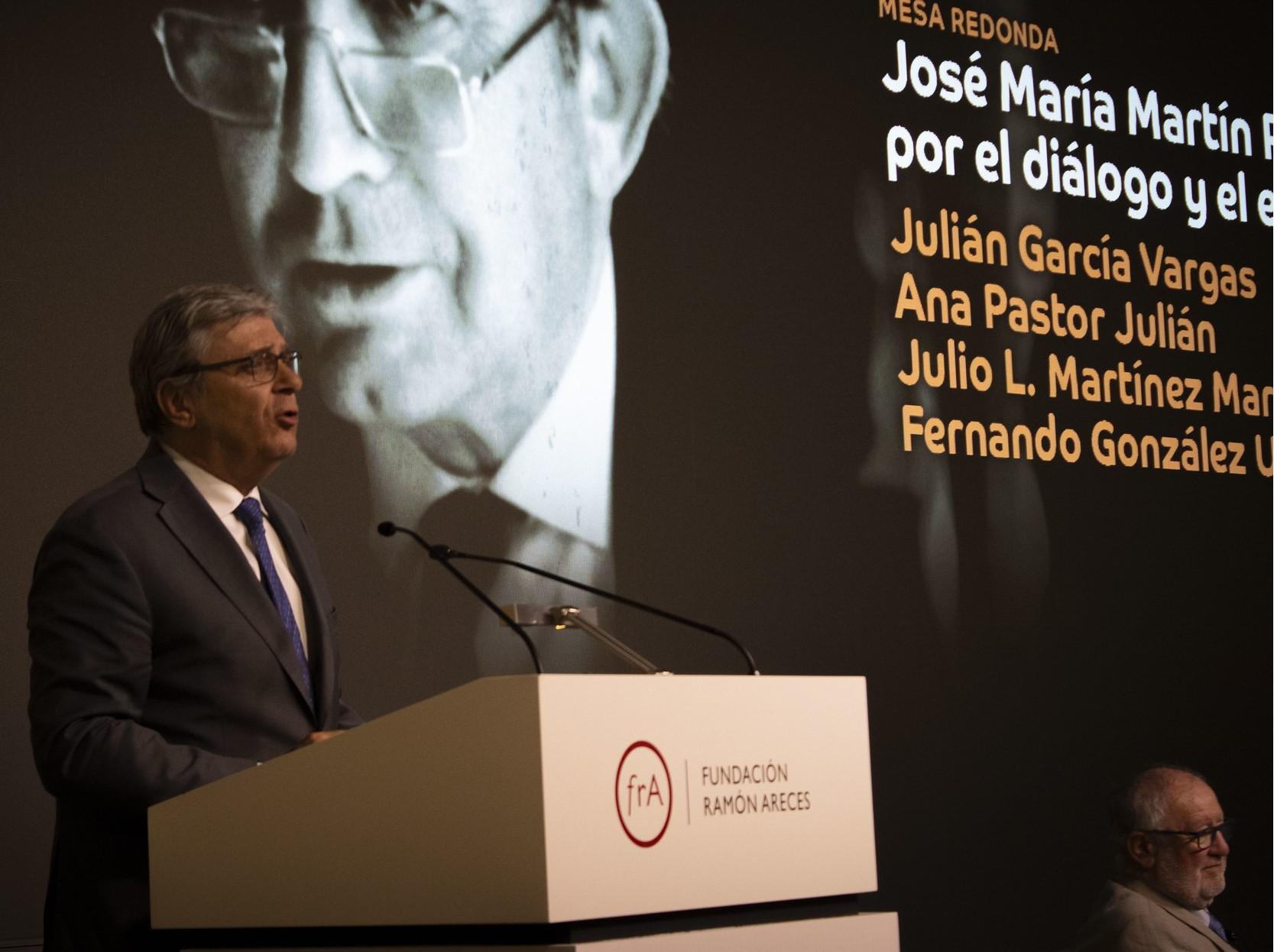What is the impact of ChatGPT for teaching?
A round table analyses the impact of artificial intelligence on education

This round table is inspired by the university's desire to help the teaching staff with actions, workshops and conferences in order to fulfil the goal of “educating as it has been done until today, or better"
10 March 2023
ChatGPT is an artificial intelligence (AI) that offers quick and well-formulated answers to a variety of questions. This is an opportunity for education, but it also raises concerns among teachers and the university system in general, which will need to find ways to incorporate these technologies into the tasks and assessments they already carry out, and even reconsider and renovate the way they teach.
All of this was discussed at the conference "What about ChatGPT? Artificial Intelligence in Higher Education; Implications, Challenges and Opportunities", organised by the Teaching Innovation Support Office (OAID in Spanish) at Comillas. It brought together lecturers from Comillas and experts from the consultancy firm Gartner, who offered information about the tool and ideas on how to make the most of it.
During the presentation, the Rector of Comillas, Enrique Sanz, urged the attendees "to think about the opportunities that ChatGPT offers in terms of education and to face the difficulties and limits when teaching". On this subject, Tony Sheenan, vice-president of research and consulting at Gartner and expert in digital transformation in higher education, said that this technology forces us to "train ourselves to interact with it", as it affects higher education "because it is capable of generating creative content in a fast and credible way".
ChatGPT is the tip of the iceberg of what is coming. "It goes beyond technology, it is going to change society," said Fabrizio Magnani, senior executive partner at Gartner, who explained that ChatGPT is a generative AI, which involves the ability to analyse huge amounts of information and provide answers as if it were a human.
ChatGPT
During the round table, the speakers exchanged ideas with the lecturers from Comillas attending the event. For Pablo Sanz, lecturer of Law at Comillas ICADE, ChatGPT means that "the current teaching model has its days numbered", although he admitted that "we have advantages over other universities and we are in a privileged position to face what is coming". The lecturer highlighted four areas in which ChatGPT can be useful: as a principle of argumentation, to ask for examples, to set out practical cases and to compare theories from different authors.
For Jaime Tatay, lecturer of Theology, this technology will improve higher education, but “we must learn how to use it”. For her part, Nereida Bueno, lecturer of Psychology at Comillas CIHS, assured that "we are going to use it in class and reflect on it". In this sense, Álvaro López, researcher at the Institute for Research in Technology (IIT), sees the tool as an aid "so that we can provide more value". He also wondered about the life cycle of new jobs, "because this is going very fast", he stated. Mario Castro, also a lecturer at Comillas ICAI, agreed with some of the speakers, claiming that this technology "can help us improve our evaluation".
For her part, Paloma Bilbao, Vice-Rector for Academic Strategy, Innovation and Internationalisation, announced the university's desire to help the teaching staff with actions, workshops and conferences in order to fulfil the goal of “educating as it has been done until today, or better”. Federico de Montalvo, Vice-Rector of Institutional Relations and General Secretary, claimed that “the artificial intelligence is a machine that, without human supervision, is useless” and Comillas must "adapt without losing its tradition".
Related news

VIII edition of the Business Ethics Research Awards

Legal, economic and academic experts analyse the challenges and solutions in the field of corporate insolvency

Comillas Pontifical University and the Ramón Areces Foundation held a round table in tribute to José María Martín Patino, on the centenary of his birth, highlighting his role as a reference point for social and ecclesial dialogue
